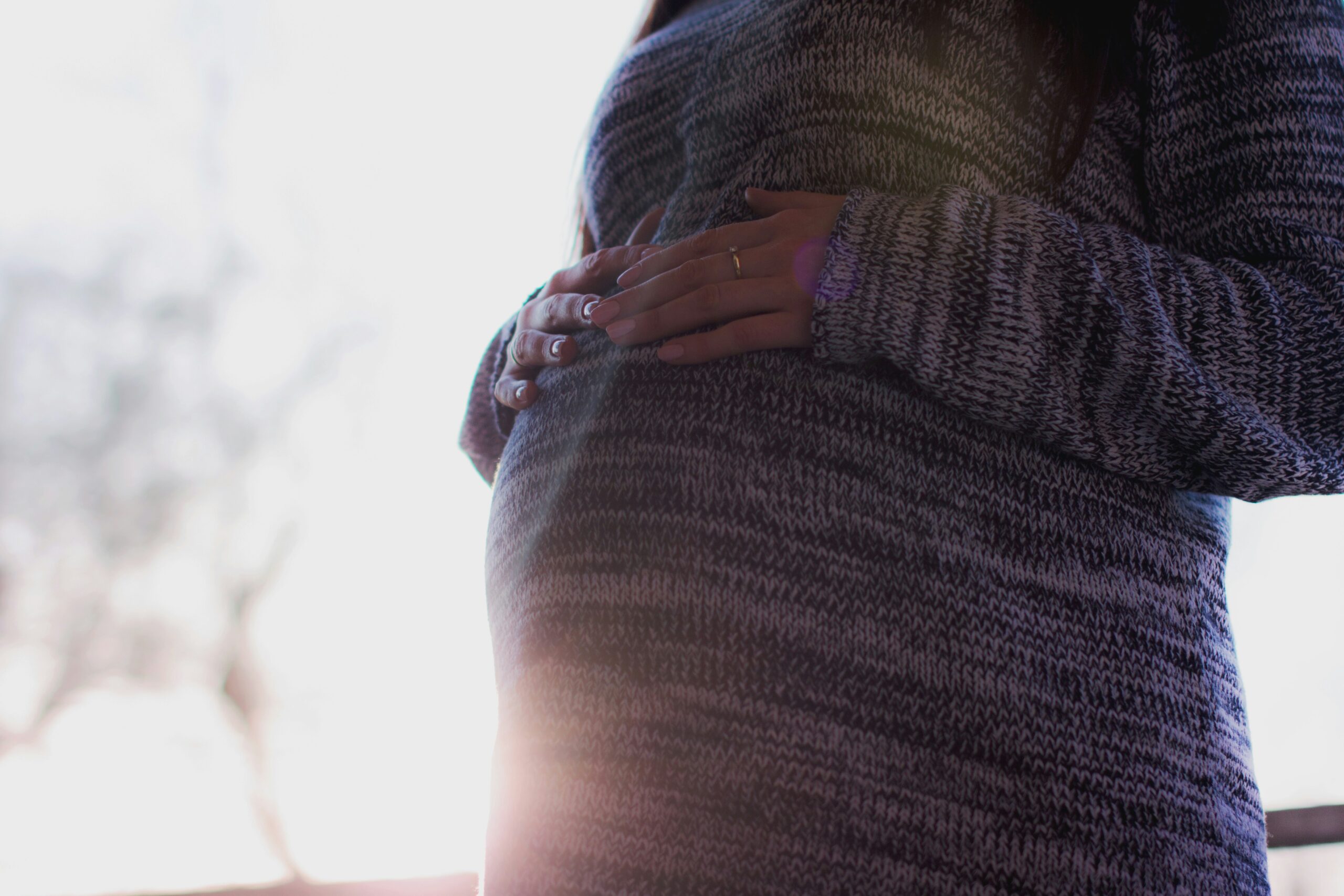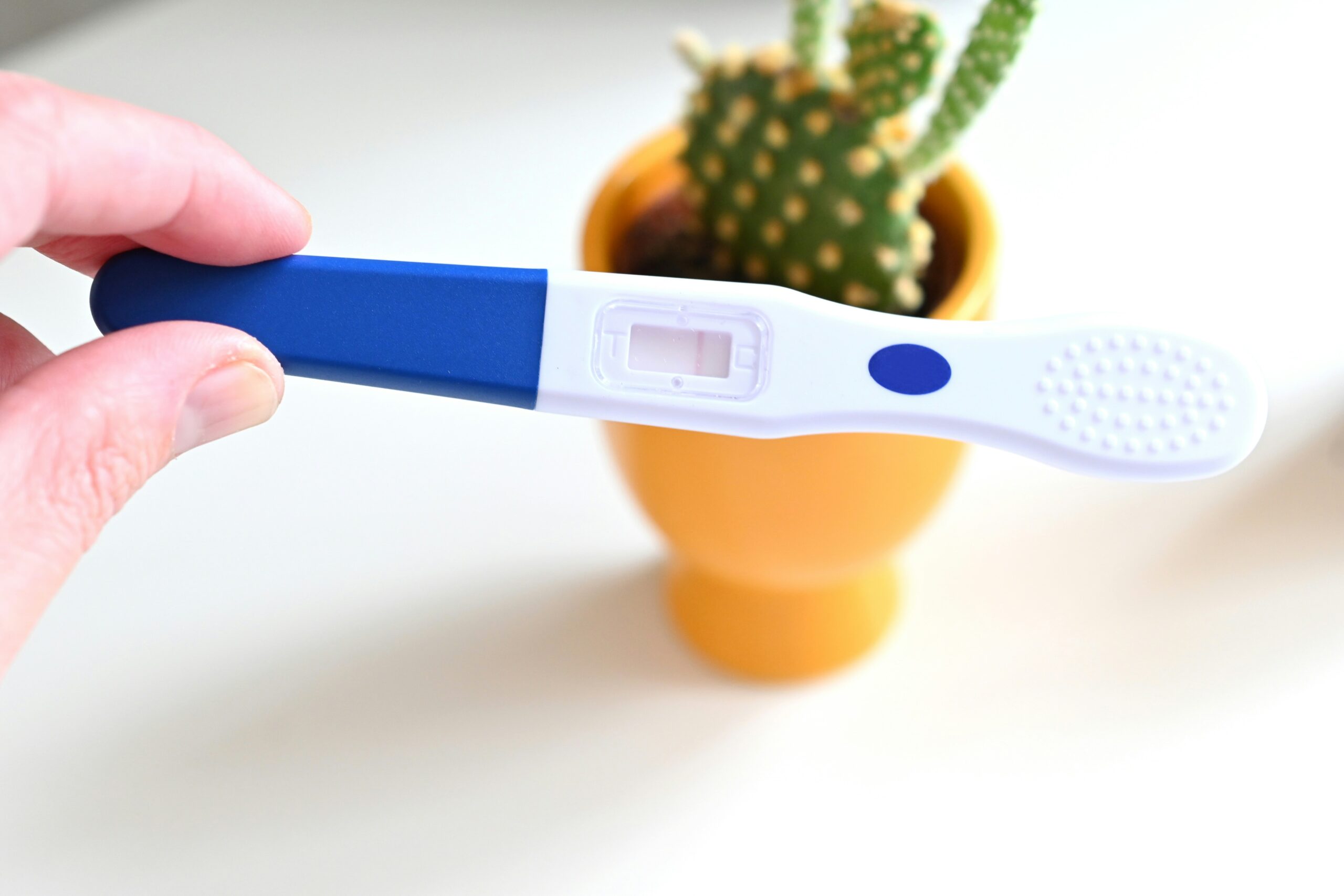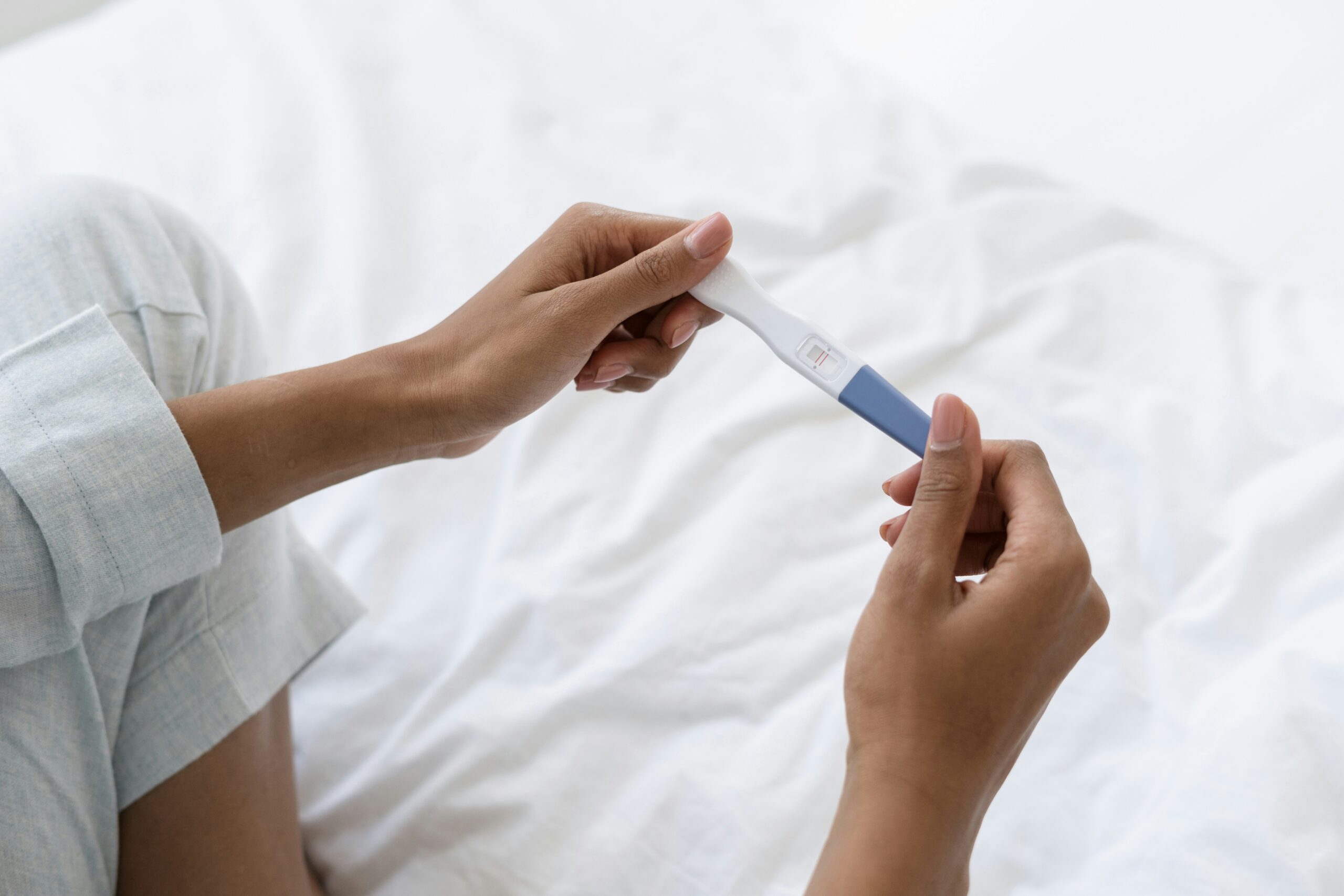I am one in four. I am a statistic. I am an infertility warrior. And, I’m also a mom of two.
My story starts in my childhood, way before I even thought about motherhood. Back when I was learning about how easy it is to get pregnant. It seemed like sperm just had to get somewhere near your vagina to result in a pregnancy. And it would be 33 years before I learned otherwise.
Sex education in the U.S. often falls short when it comes to the female reproductive system. This disconnect became clear during conversations with my girlfriends as we all navigated trying to conceive our children.
As I got older, I started hearing stories about infertility and pregnancy loss, yet I still didn’t think it was something that could—or would—happen to me. I never expected to have an issue getting pregnant or experience the range of emotions that accompany this journey. When the time was right, I expected my body to do what it was designed to do: get pregnant and give birth.
This most innate feature of womanhood, the reason I deal with period cramps every month, was supposed to be easy. Once I started having trouble conceiving in my early 30s, feelings of betrayal by my own body started creeping in.
Most couples I knew who were the same age as me were getting pregnant within four to six months of trying. After my husband and I had been trying for eight months, I knew something was wrong.
People kept telling me I was still young and shouldn’t worry—“it would just happen when you least expected it.” Most doctors won’t even test for fertility issues until you’ve been trying for over a year if you’re under 35. But I knew that something was off. My cycles were pretty short, which seemed abnormal.
Luckily, my OB/GYN tested my hormone levels. She told me the solution to my issue would be to supplement the end of my cycles with a hormone called progesterone, which plays a crucial role in the menstrual cycle. Having enough progesterone ensures your uterine lining is prepared for a potential pregnancy. It’s also responsible for shedding that lining if pregnancy doesn’t occur. I figured if I was lacking in progesterone, this would be an easy fix to help me get pregnant.
Except I still didn’t get pregnant.Meanwhile, my husband had a semen analysis but nothing showed up to point to him being the issue.
We realized we needed to take other measures to help us get pregnant naturally. I started seeing an acupuncturist weekly who explained the entire reproductive system and process in a three-hour patient intake. It’s sad to say I didn’t fully grasp how getting pregnant happened and what you should be doing to give yourself a better chance at it happening naturally.
She put me on a Chinese herbal regimen, consisting of 38 pills a day in addition to advising me to change my diet, exercise regularly, meditate and cut out plastics and chemicals in everyday products like shampoo and deodorant.
I followed her guidance religiously.
I bought all organic foods.
I started to include animal fat in every meal and cut out all processed foods, gluten and sugars.
I was meditating daily and exercising four times a week. I started a daily gratitude journal.
I got rid of everything plastic in my kitchen and replaced all my household items with green alternatives.
I was going to acupuncture weekly and taking all my herbs each day.
I took my temperature every morning and tracked it in an app.
I peed on an ovulation kit stick multiple days of the month and forced myself to have sex after it wasn’t “fun” anymore.
But, I still did not get pregnant.
After about four months, my acupuncturist told me that there was nothing more she could do because the second part of my cycle wasn’t long enough to sustain a pregnancy to the end. She explained you can’t change how long your cycles are because it’s how you’re born. Which, of course, I now question. I started wondering if maybe conception was happening this whole time, but, because the second part of my cycle wasn’t long enough, it wasn’t implanting or staying implanted.
She also told me I might need a donor egg which shattered me. It became a very real possibility to me that I wouldn’t be able to have a child that was genetically related to me. It was very upsetting to be told before I had even seen a fertility specialist. This is a lesson to us all to be very selective about what we say to people struggling with infertility. Please be sensitive and think about what you’re saying before you do. Unsolicited advice is rarely helpful.
At the recommendation of my acupuncturist, I started to see a fertility specialist. I underwent a lot of tests, some painful and uncomfortable, searching for a reason why I was seemingly ‘infertile.’ The result was a diagnosis of ‘Unexplained Infertility,’ which is essentially a diagnosis by exclusion. Unexplained infertility is given to about 15-30 percent of infertile couples and it means that, despite testing and procedures performed to determine a root cause, there’s no definitive or known reason why a couple cannot conceive.
I struggled with this. While it’s not easy to have (polycystic ovary syndrome) PCOS or endometriosis, I found myself wishing there was something to point to and say, “That’s why I’m not getting pregnant.” Instead, it felt like my body was just slacking.
I was damaged, defective and there was nothing concrete causing it; no explanation for why I couldn’t get pregnant. The weight of these thoughts can be crushing. I’m grateful I had some coping mechanisms to use, which I will share below, and for my husband who was my pillar of strength in the hardest times.
I also kept reminding myself I’m very blessed to have the opportunity to pursue fertility treatments because they can be very costly. At this point, I started hearing the terms Intrauterine Insemination (IUI), In Vitro Fertilization (IVF) and other fertility tests and treatment terms which I realized were becoming a reality for me.
I quickly learned going through infertility makes you second-guess everything you once thought to be true—iIt makes you regret things and terrorize yourself for stupid stuff you’ve done in the past. I had a lot of anger, tears, frustration and most of all, questions. I started questioning whether I would ever be pregnant or if I was meant to have a baby at all.
I knew it was going to be important for me to stay positive through all these long months of trying and then being disappointed. I wrote in my gratitude journal every day to help put things in perspective and not allow this to take over my life. I also tried to meditate every day to destress and unwind.
In October 2019, we did our first cycle of IUI, or intrauterine insemination. This is where a semen sample is collected from a male partner (or sometimes a sperm donor) and injected into the uterus via catheter to impregnate the woman around the time of her ovulation.
We were so convinced this was it but it didn’t work. We took a short break due to the holidays and the stress that comes with them, so our second try took place in February. Sadly, this try wasn’t successful either.
Our clinic recommended we only do three IUItries before moving to IVF, but ultimately left the decision up to us if we wanted to go for another IUI or move on to IVF. After a two-year journey, the process was getting tiring and getting old every month. Sex was no longer fun, but rather a business exchange that needed to be scheduled. The tests and tracking became part of our normal routine. It was incredibly emotionally taxing—not to mention physically challenging, too.
At this point in my journey, I had turned 35, which increased the risks and difficulties of pregnancy. Crossing this imaginary line made me feel even more anxious and pressured to get pregnant as soon as possible.
Based on my numbers and recommendations from my doctor, my husband and I decided to move forward with IVF. It is a complex process with different parts.To summarize, it starts with a round of stimulation shots to grow your follicles or eggs, so they can be harvested and hopefully fertilized in the lab to create an embryo that can then be transferred later.
So, we started our shots—and then the COVID-19 pandemic hit. Luckily, I was able to complete my cycle and retrieval. The IVF process is already a rollercoaster and adding the uncertainty and stress about whether or not I’d be able to finish or if it’d be canceled felt like cruel and unusual punishment. And the paranoia of trying not to get sick with this new and unknown virus in the process added even more stress. I’m surprised that despite all of this—I had a successful retrieval.
We decided to do genetic testing on our embryos to make sure they would have the best chance of leading to a healthy baby. We were blessed to have the process result in four viable embryos.
We were then on an indefinite hold waiting until it was safe to do the embryo transfer. That period felt like forever—but in my mind the hardest part was done and I felt a bit of relief. In July 2020, I went in for my frozen embryo transfer (FET). Again, I followed all the protocols precisely and did pre and post-acupuncture treatments. I even ate only warm foods and pineapple. There’s rumors out there about McDonald’s French fries, but I didn’t go there.
It was a long wait, but 10 days later, I got the best news of my life; I was finally pregnant!
After a very normal and uneventful pregnancy, our dream baby boy was born in March 2021. In January of 2024, I gave birth to my second baby, a girl, whose embryo came from this same round of IVF. So, I’m now a mom of two. While my story has a very happy ending—it is not always the case for women facing infertility issues.
As an infertility warrior, I want those of you who are facing infertility, whether it’s unexplained infertility like me or due to underlying causes like PCOS or endometriosis, to know that you’re not alone. We need to stick together and support each other especially when it comes to topics that aren’t talked about enough like infertility and miscarriages.
If we stick together and support each other, we will come out of this journey stronger. There are also a few examples of ways to stay positive and hold on to hope that I’d like to share with you:
- Start a daily gratitude journal. When I started to write 5-10 things per day that I was grateful for, it put things into perspective. It encouraged me to focus on everything I did have versus obsessing over only what was missing.
- Keep a diary. Using a diary to write down experiences and details of your appointments allows you to document everything on paper to better process all the details and make it more clear so you can better advocate for yourself.
- Picking up a meditation practice. Taking 5-10 minutes per day to sit in quiet solitude with no thoughts helped me destress and calm down. If you’re new to meditation, there are a lot of great apps out there to get you started and a lot of them have free options.
- Acupuncture can help with relaxation and mind-body connection as well as fertility. I would seek a seasoned professional with experience in fertility-related treatment.
- Make sure you’re living a healthy lifestyle. Not only does eating right and exercising help your body prepare for pregnancy, but it also helps your mental health. I find that I’m so much more happy, energetic, and positive-minded when I’m putting the right foods in my body and getting regular exercise.
- Listening to the right podcasts and following select social media accounts can act as a good outlet and offer support by finding a group of women who understand what you’re going through. Less is more here though. Following the right accounts and checking in with yourself to make sure you’re not consuming too much is key.
- Turn to organizations for mental & financial support. Hopeful Mama Foundation (HMF) and Baby Quest offer financial grants to support fertility treatments and HMF offers in-person and virtual support groups. You may even consider talking to a therapist one-on-one.
All of these tactics helped me and I hope they help you too. One final way that I was able to cope with all of this is by using my talents as a jewelry designer to create jewelry that helps others on their fertility journey. With my special Infertility Collection available on ReviveJewelry.com, you choose an item with a general embryo image or you can personalize one with your images. A portion of the proceeds is donated to Hopeful Mama Foundation or Baby Quest to help fund IVF and fertility treatment grants. So it’s a special way to honor your journey and also give back to help others achieve their motherhood dreams.
As I’ve gone through this journey, I’ve met a lot of women in the same infertility boat. Although everyone’s journey is very different, we usually still have a lot in common. I hope my story has helped you and that you’re able to fulfill your desires for motherhood in whichever way is right for you.
Author
-

Nikki Zazzali is the founder & CEO of Revive Jewelry, a charitable company using cell images of cancer & disease to raise money for research. Nikki started her company after losing her grandfather to lung cancer & witnessing her brother’s lupus diagnosis, both of which opened her eyes to the lack of research funding for many important causes. Nikki is a Los Angeles native and lives in Redondo Beach with her husband and two young children. When she's not busy with work or chasing around two littles, you can find her exercising in her favorite HIIT class or curled up on the couch with a coffee and a good book.
View all posts





